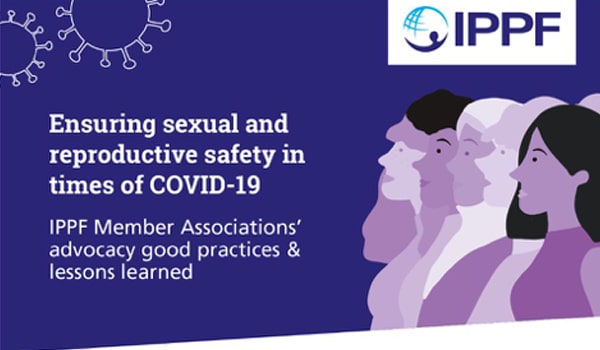
Developed by the IPPF Advocacy Advisory Group, this brief focuses on the responses by national IPPF Member Associations to promote, protect and defend SRHR during the Covid-19 pandemic. It illustrates the range of advocacy strategies they have employed to ensure the continuation of services, advocate for innovation in access to and provision of services, respond to attempts from the opposition to counter progress made on SRHR, and ensure the sustainability of SRHR interventions in the future. Some examples:
In Nepal, it is mandatory for a woman to visit a clinic to access abortion care. Due to the pandemic, health systems have become already overstretched and almost solely aimed at treating COVID-19 patients, leaving behind women in need of abortion. A vibrant civil society, including the Family Planning Association of Nepal (FPAN), has played an instrumental role in ensuring that in May 2020, the government approved de-medicalised abortion and the home use of medical abortion drugs under a self-care approach.
In Bolivia, the Centro de Investigación, Educación y Servicios (CIES) used its existing membership in national working groups on SRHR and maternal health to push for the inclusion of SRH on the list of the essential services.
In Thailand, the Planned Parenthood Association of Thailand under the patronage of H.R.H the Princess Mother (PPAT), was able to leverage its existing relationships with local authorities to obtain approval for cross border movement during the lockdown for the purposes of access to SRH services, primarily contraception and safe abortion care, at PPAT clinics.
In Tunisia, the Tunisian Sexual and Reproductive Health Association (ATSR), in partnership with like-minded CSOs called on the government to allow sub-Saharan migrants and refugees to be able to access medical services free of charge.
In the Democratic Republic of Congo, the youth peer educators of ABEF-ND have been using their WhatsApp and Facebook CSE groups to inform adolescents and youth about protective measures against COVID-19, as well as SRHR. By engaging with their target audiences in this way, they have recorded the impact of the pandemic on SRHR, such as unintended pregnancies, sexually transmitted infections and unsafe abortions. The peer educators then formed a delegation to meet the Ministry of Health and advocate for better CSE and access to SRH services for young people based on the information they collected.
SOURCE: IPPF, July 2020



